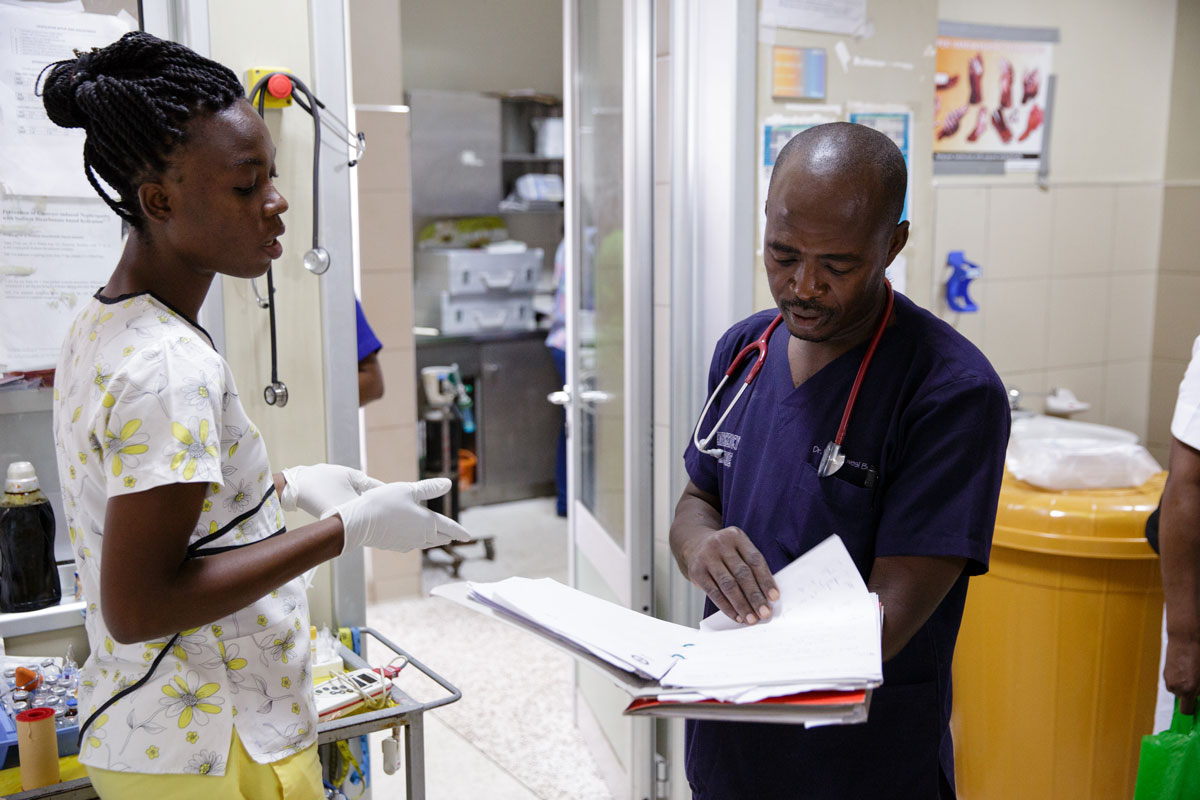EARLY HISTORY In 2001, following the collapse of the Accra Sports Stadium that killed 127 Ghanaians, the Ghana College of Physicians and Surgeons identified Emergency Medicine as a specialty in urgent need of development. The collapse is considered to be the worst stadium disaster in African history. A national commission on the state of Emergency Medicine in Ghana was established composed of the Ghana College of Physicians and Surgeons, National Ambulance Service, Ministry of Health, Ghana Health Service, and other national stakeholders. The public response to the stadium disaster prompted the Ghanaian government to construct a new national Accident and Emergency Center in Kumasi. The Ghana College of Physicians and Surgeons approached the University of Michigan Department of Emergency Medicine in 2007 to collaborate on the development of a postgraduate training program. Building on previously successful collaborations with the University of Michigan Department of Obstetrics and Gynecology and the School of Public Health, a partnership was created with the Ghanaian federal agencies, Kwame Nkrumah University of Science and Technology (KNUST), Komfo Anokye Teaching Hospital (KATH), and the University Of Michigan Department Of Emergency Medicine. The primary goal of the partnership was to improve the provision and outcomes of emergency care in Ghana by developing an Emergency Medicine training program.

MEDICAL EDUCATION PARTNERSHIP INITIATIVE (MEPI) PILOT GRANT
In 2010, Kwame Nkrumah University of Science and Technology (KNUST) received a MEPI Pilot Grant in partnership with the University of Michigan to support the Ghana Emergency Medicine Collaborative. The award is part of a $130 million, five year initiative by the National Institutes of Health Fogarty International Center to: 1) train and retain 140,000 new health care workers in Sub-Saharan Africa; 2) strengthen medical education systems; and 3) build clinical and research capacity to retain medical faculty. U.S. Department of Health and Human Services Partners With PEPFAR to Transform African Medical Education With A $130 Million Investment. Read more at the National Institutes of Health website.
GOALS AND OBJECTIVES

The Ghana Emergency Medicine Collaborative intends to develop an innovative, interdisciplinary, sustainable, team-based medical training program to improve the management of injury and acute medical conditions, while retaining skilled health care providers in Ghana. The aim is to increase Emergency Medicine capacity by creating high quality, locally based training programs.
